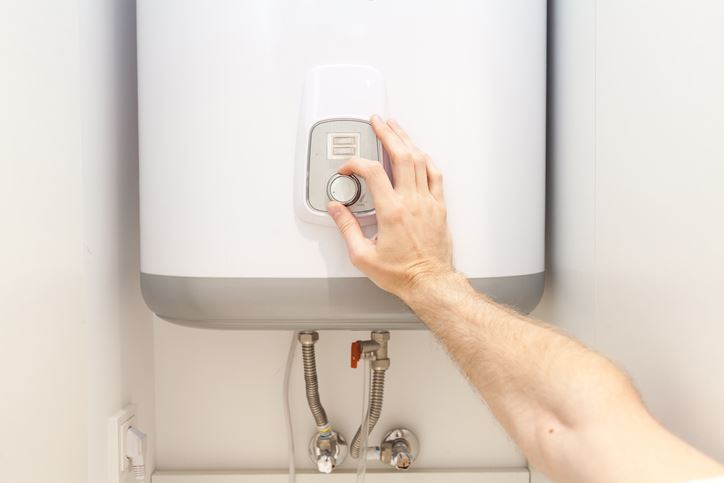
Water heaters aren’t usually the first part of your plumbing system you think of when you’re preparing your home for the winter. In reality, though, it is just as important to winterize your water heater as it is the rest of your home, especially if your area is prone to cold weather snaps like in North Texas.
Freezing temperatures are more likely to affect your exterior and exposed plumbing, but a sudden power outage can cause your water heater to strain too. Water heaters keep us warm in the winter, but they can’t help your home if the water freezes inside the tank. Homeowners can ensure warm showers for everyone in the household by winterizing their water heaters. Blue Star has some tips to get started.
Schedule a tune-up for your water heater.
Like any other plumbing appliance, your water heater needs maintenance. In terms of winterizing your water heater, a tune-up plays a major role in preventing your tank from freezing. Most water heaters have freeze protection, such as additional insulation or heaters.
Another freeze protection method is to cycle the water heater on and off if the sensors register that the tank’s temperature is dropping below freezing. Your water heater’s first line of defense is useless, though, if the components are worn out and the sensors are failing. A pre-winter tune-up is a great first step toward winterizing your water heater.
Drain your water heater.
If you know the weather is supposed to drop below freezing for a while and your water heater is exposed, it’s best to drain it or keep it cycling as much as possible. Once water freezes in the tank, it will be tough to thaw, and the expanding ice may damage your tank. Follow these steps to drain your water heater:
- Turn off any supply lines leading to the tank, such as gas, electric, and cold-water supply lines. You can set gas tanks to the pilot setting.
- Place a bucket under the drain valve.
- Turn on a hot water faucet nearest to the water heater.
- Open the drain valve and drain the remaining water.
- To stir up any sediment, turn on the cold-water supply and let the water drain until it’s free of sediment.
Be careful as you drain your tank. The water inside will still be heated to the previously set temperature.
Insulate around the water heater.
Not only can your water heater freeze, but the pipes leading to and from the tank can also freeze. If your cold-water supply line were to freeze, for instance, this would make your water heater impossible to use. You can easily insulate the exposed lines and the water heater with foam insulation or similar from your local home improvement store!
Blue Star has worked on water heaters for over a decade now, and our team of highly skilled plumbers can help you winterize your plumbing today. All it takes is a quick call to Blue Star. We’ll make sure your home stays in great shape all winter long.
